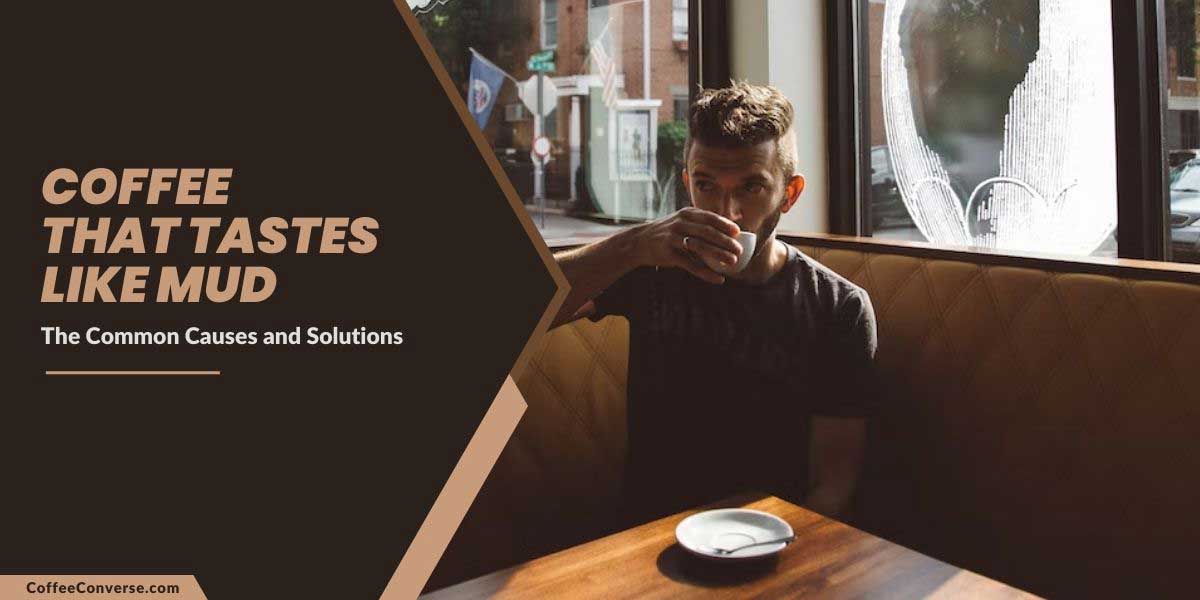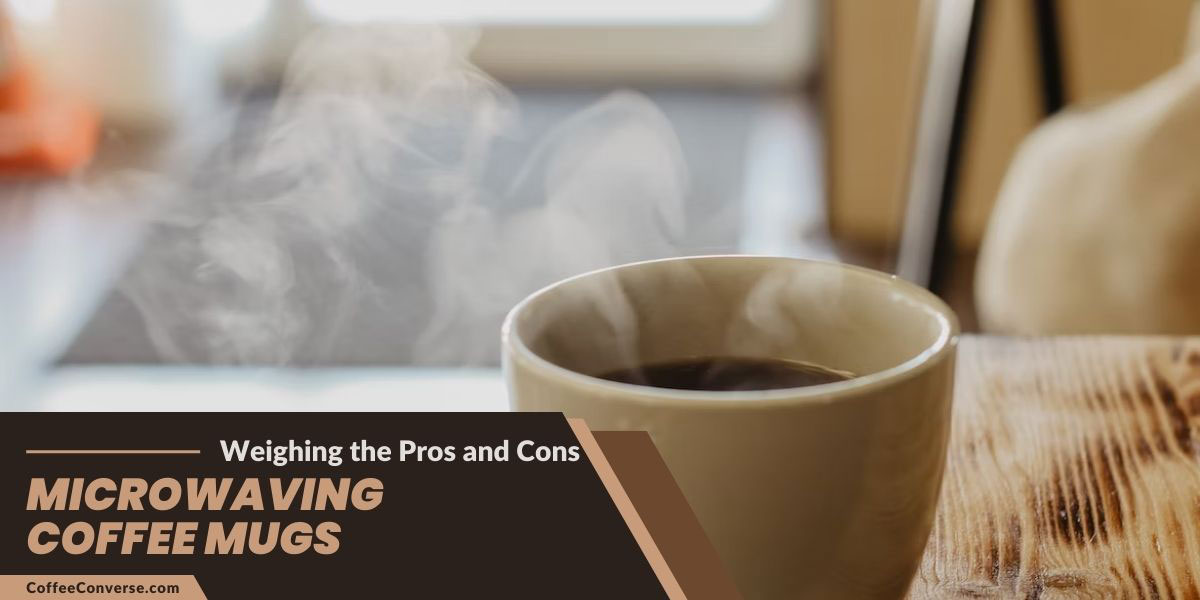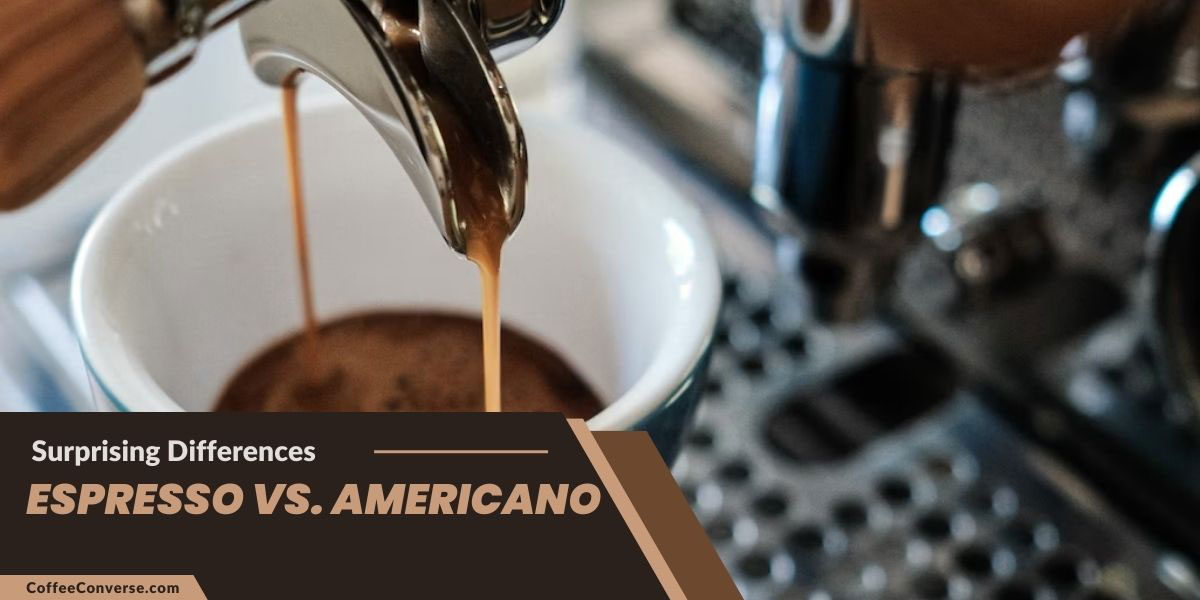Ever take a sip from your favorite coffee and think, “This tastes like mud?” It’s happened to all of us— A poor cup of coffee can ruin our day.
We can help you find the cause of your muddy-tasting cup and providing the solutions.
Let’s get together, grab our mugs and explore this murky world together.
Common Causes of Muddy Coffee

Coffee can taste like mud for many reasons; These are the most common reasons why coffee tastes like mud.
Using old beans
If you find your coffee tasting like mud, this could be due to old beans. Coffee beans last for a limited time. Therefore, if you are using coffee beans that are not in their prime, the beans won’t taste quite as good. Fresh beans should have been roasted within 2 weeks.
Over-extraction
Over-extraction occurs when coffee is brewed for too long or with too fine a grind. The longer the coffee is in contact with the water, the more bitter and muddy it will taste. To prevent this, use a coarser grind and reduce the brewing time.
Dirty Equipment
If your coffee maker or French press is dirty, it can affect the taste of your coffee. Old coffee oils and grounds can build up over time and make your coffee taste muddy— Be sure to clean your equipment regularly to avoid this.
Solutions to Muddy Coffee

Now that we know the common causes of muddy coffee let’s take a look at some solutions…
Use Fresh Beans
As we mentioned earlier, using fresh beans is key to enjoying a great cup of coffee. If you’re not sure how old your beans are, check the packaging for a roast date—If there isn’t one; assume they’re old and consider buying new beans
Adjust the Grind
If your coffee tastes muddy, try adjusting the grind— A coarser grind will allow for less extraction time, resulting in a cleaner, less muddy cup of coffee.
Clean Your Equipment
Cleaning your equipment is essential to enjoying great coffee. If you’re using a French press, be sure to disassemble it completely and wash all the parts— If you’re using a coffee maker, run a cycle of water and vinegar through it to remove any built-up oils or grounds.
Use Good Water
The quality of your water can also affect the taste of your coffee. If your tap water tastes off, it will make your coffee taste muddy. Consider using filtered or bottled water instead.
Adjust the Ratio
The ratio of coffee to water is crucial to getting the perfect cup. If your coffee tastes muddy—try adjusting the ratio. A general rule of thumb is to use 1-2 tablespoons of coffee per 6 ounces of water.
Experiment
Lastly, don’t be afraid to experiment. Coffee is a personal thing; what works for one person may not work for another. You can try:
- different brewing methods,
- types of beans,
- and ratios
until you find the perfect cup of coffee for you.
Conclusion
After exploring the common causes of muddy coffee; we’ve provided some simple solutions to help you brew the perfect cup every time. By:
- using fresh beans,
- adjusting the grind,
- cleaning your equipment,
- using good water,
- and adjusting the ratio
are all easy ways to improve the taste of your coffee. We also encourage you to experiment to find what works best for you.
In conclusion, with a little bit of know-how and some experimentation, you can brew a great cup of coffee that doesn’t taste like mud— So grab your mug, try out our tips, and enjoy your perfect cup of coffee. Cheers! #CoffeeConverse #NoMoreCoffeeTastesLikeMud
FAQs
Can changing the brewing method improve the taste of my coffee?
Absolutely! Different brewing methods can bring out different flavors in your coffee—For example, French press coffee has a fuller body and stronger flavor than drip coffee. Experiment with different methods to find the one that suits your taste buds.
Is it necessary to clean my coffee equipment regularly?
Yes, it’s essential to clean your coffee equipment regularly to ensure that there’s no buildup of oils or residue that can affect the taste of your coffee. Regular cleaning also helps to prolong the lifespan of your equipment
Can the water quality affect the taste of my coffee?
Definitely! The quality of your water can affect the flavor of your coffee. —Hard water with a high mineral content can make your coffee taste muddy or metallic. It’s best to use filtered water for the best results.
How can I tell if my coffee is over-extracted?
Over-extracted coffee can taste bitter and muddy. You can tell if your coffee is over-extracted by its dark color, bitter taste, and astringent mouthfeel. To avoid over-extraction; ensure that you’re using the correct brewing time and ratio.
How can I tell if my coffee is under-extracted?
Under-extracted coffee can taste weak and watery. You can tell if your coffee is under-extracted by its light color, lack of flavor and thin mouthfeel.—To avoid under-extraction, ensure that you’re using enough coffee and the correct brewing time.
Can using a different roast level improve the taste of my coffee?
Yes, using a different roast level can bring out different flavors in your coffee. Light roasts tend to have a brighter, fruitier flavor, while dark roasts have a richer, bolder flavor. Experiment with different roast levels to find the one that suits your taste buds.
Can using too much coffee cause a muddy taste?
Yes, using too much coffee can cause a muddy taste. It’s important to use the correct ratio of coffee to water for the best flavor. Typically, a ratio of 1:15 (one part coffee to 15 parts water) produces a balanced flavor.
Can using a different brewing method improve the taste of my coffee?
Yes, different brewing methods can produce different flavors in your coffee. For example, espresso has a stronger, more concentrated flavor than drip coffee. Experiment with different brewing methods to find the one that produces the best flavor for you.
Can using a different grinder improve the taste of my coffee?
Yes, using a high-quality grinder can improve the taste of your coffee. A consistent grind size ensures that the coffee extracts evenly, producing a balanced flavor. Consider investing in a burr grinder for the best results.
Can using a different brewing temperature improve the taste of my coffee?
Yes, using the correct brewing temperature can improve the taste of your coffee. Water that’s too hot can lead to over-extraction, while water that’s too cold can result in under-extraction. Aim for a brewing temperature of around 195-205°F for the best flavor.
How often should I clean my coffee equipment?
It’s best to clean your coffee equipment after every use to ensure that there’s no buildup of oils or residue that can affect the taste of your coffee. Additionally, deep clean your equipment every few weeks to remove any stubborn buildup. Regular cleaning helps to ensure that your coffee always tastes its best.




